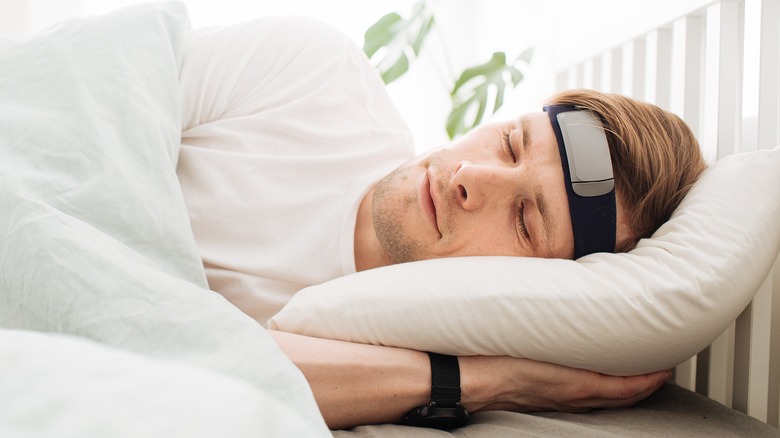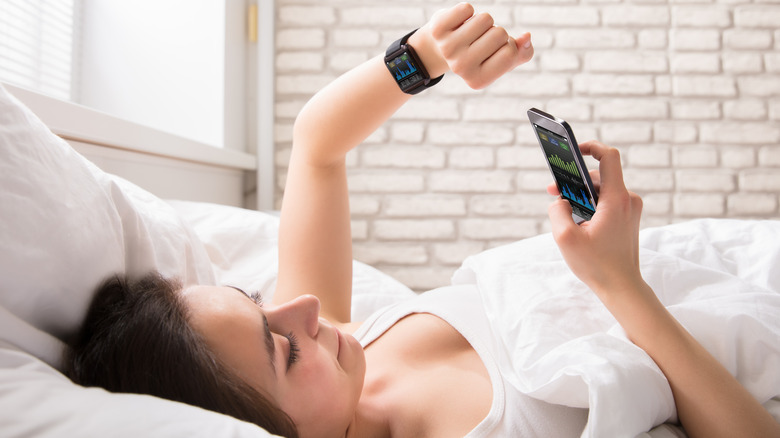Why You Should Be Tracking Your Sleep
The Centers for Disease Control and Prevention reports that one-third of adults in the U.S. don't get enough sleep each night. How much sleep is enough? A 2015 study conducted by the National Sleep Foundation recommends seven to nine hours for adults. Although we might go to bed at the same time, we might feel a little more tired on certain mornings compared to others. Some factors, such as scrolling through our phones, vitamin D deficiency, or late afternoon coffee (per Livestrong) can affect the quality of our sleep.
Losing an hour or two of sleep for a few nights might sound harmless, but the National Heart, Lung, and Blood Institute (NHLBI) says this can be just as bad as a single night of no sleep. The NHLBI also says a lack of sleep can affect your focus and memory. While sleeping, your mind develops the capacity to learn new things the next day. This helps with your creativity and ability to make important decisions. Therefore, we can find out how much sleep we're getting by using a sleep tracker.
Using a sleep tracker
Although we might intend to go to bed at a certain time each night, sleep trackers can help us be a little more mindful of how much time we spend on the pillow. These wearable technologies monitor various metrics, such as how often you toss and turn, using accelerometers or heart rate monitors. A smartphone app usually tracks your data so you can measure your sleep over time.
If you're uncomfortable wearing something on your wrist, researchers from MIT developed a device that monitors shifts in sleeping and breathing using wireless signals. In a 2020 paper in the Proceedings of the ACM on Interactive, Mobile, Wearable and Ubiquitous Technologies, a device called a BodyCompass was installed on a wall to take snapshots of study participants' body posture throughout the night.
However, these tracking technologies can't tell whether you're in deep sleep or lying still in bed (per the University of Michigan Health). Instead, sleep trackers can be helpful in setting goals for sleep. According to Johns Hopkins Medicine, sleep trackers can help you monitor various patterns in your sleep, such as the times that make you feel more restful. Even if you get a consistent eight hours of sleep per night, you might notice that you feel more tired if those hours fall between 11 p.m. and 7 a.m. versus 9 p.m. and 5 a.m.
Regardless of the method you use, the key is to monitor how much sleep affects you during your waking hours.


